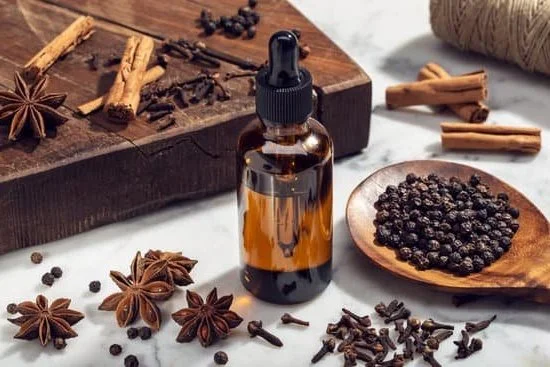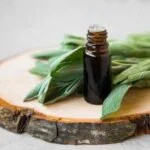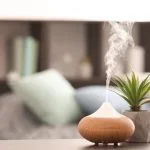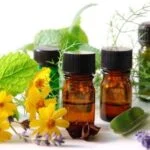Does aromatherapy for depression really work? Aromatherapy is a holistic healing treatment that uses natural plant extracts to promote health and well-being. In recent years, it has gained attention as a potential remedy for managing symptoms of depression. This article aims to explore the concept of aromatherapy and its potential benefits for individuals struggling with depression, shedding light on the scientific evidence behind its efficacy.
Depression is a common mental health disorder characterized by persistent feelings of sadness, hopelessness, and a loss of interest in daily activities. It can have a profound impact on an individual’s quality of life, affecting their relationships, work, and overall well-being. Many people search for alternative therapies to complement traditional treatments for depression, leading to an increased interest in aromatherapy as a potential solution.
The science behind aromatherapy involves the use of essential oils derived from plants like lavender, bergamot, and chamomile to influence mood and emotions. Research suggests that these essential oils may have therapeutic properties that can positively impact mental health. By understanding the principles and potential benefits of aromatherapy, individuals struggling with depression may find new avenues for managing their symptoms and improving their overall well-being.
Understanding Depression
Depression is a serious mental health condition that can have a significant impact on an individual’s overall well-being. It is characterized by feelings of sadness, hopelessness, and a loss of interest in activities that were once enjoyable.
In addition to these emotional symptoms, depression can also manifest physically, leading to changes in appetite, sleep disturbances, and even thoughts of self-harm or suicide. The combination of these symptoms can greatly affect one’s quality of life and ability to function in daily activities.
Symptoms of Depression
The symptoms of depression can vary from person to person, but common signs include persistent feelings of sadness or emptiness, irritability, difficulty concentrating, changes in sleep patterns, and noticeable changes in weight or appetite. Additionally, individuals with depression may experience physical ailments such as headaches or stomachaches that do not have a clear medical cause. It’s important to note that experiencing these symptoms for an extended period of time may indicate the presence of clinical depression.
Impact on Mental Health
Depression can have a profound impact on an individual’s mental health, often leading to feelings of worthlessness and hopelessness. As the condition progresses, individuals may find it increasingly difficult to engage with others socially or maintain healthy relationships. Furthermore, depression can significantly impair one’s ability to perform at work or school and interfere with everyday responsibilities. Left untreated, depression can escalate and become more severe over time.
Aromatherapy has been suggested as a potential complementary treatment for managing symptoms of depression. Research has shown that certain essential oils used in aromatherapy may help reduce feelings of stress and anxiety while promoting relaxation and improved mood.
While aromatherapy should not be used as a substitute for professional medical treatment for depression, it could be incorporated into a comprehensive self-care plan to support overall mental well-being. There is some evidence suggesting that using certain essential oils through aromatherapy does provide benefits for individuals struggling with depressive symptoms; however more research is needed to fully understand its effectiveness as a standalone treatment for depression.
Science Behind Aromatherapy
Aromatherapy has been used for centuries as a natural remedy for various ailments, including mental health issues such as depression. But does aromatherapy for depression really work? In order to understand the effectiveness of this alternative treatment, it is essential to explore the scientific research and studies that support its use in improving mood and emotions.
Research has shown that aromatherapy can have a positive impact on emotional well-being. Studies have suggested that certain essential oils have the ability to influence the brain’s chemistry and nervous system, leading to feelings of relaxation and calmness. For example, the scent of lavender has been found to have anxiolytic effects, helping to reduce anxiety and improve sleep quality. Similarly, bergamot oil has been linked to reducing stress levels and promoting a more positive outlook.
To further understand the science behind aromatherapy, it is important to consider the physiological effects of inhaling essential oils. When inhaled, aromatic molecules stimulate olfactory receptors in the nose, which then send signals to the limbic system – the area of the brain responsible for emotions and memories.
This process can trigger the release of neurotransmitters such as serotonin and dopamine, which are known for their role in mood regulation. These biochemical changes may explain why many individuals experience relief from symptoms of depression when using aromatherapy.
In addition to its impact on brain chemistry, aromatherapy may also affect other physiological processes that are related to emotional well-being. Some essential oils have been found to have anti-inflammatory and antioxidant properties, which could potentially contribute to overall improvements in mental health. While more research is needed to fully understand the mechanisms behind aromatherapy’s effects on mood and emotions, existing studies provide promising evidence for its potential as a complementary therapy for depression.
- List of scientific studies on how aromatherapy affects mood
- “The Effect of Aromatherapy on Mood: A Systematic Review” published in Evidence-Based Complementary and Alternative Medicine
- “The Impact of Lavender Aroma on Cognitive Performance” conducted at Wesleyan University
- Behavioral responses observed in individuals during aromatherapy sessions
- Reduction in anxiety levels
- Improved sense of relaxation and calmness
- Physiological changes associated with inhaling essential oils
- Increased production of neurotransmitters like serotonin and dopamine
- Anti-inflammatory effects observed in some essential oils
Popular Essential Oils for Depression
Lavender
One of the most popular essential oils for depression relief is lavender. Lavender essential oil is known for its calming and relaxing properties, making it an effective tool for managing stress, anxiety, and symptoms of depression. Research has shown that inhaling the aroma of lavender can help reduce cortisol levels in the body, which are often elevated in individuals experiencing chronic stress or depression.
Bergamot
Another essential oil commonly used to alleviate depression symptoms is bergamot. Bergamot essential oil is derived from the rind of bergamot oranges and has a citrusy, floral scent. Studies have suggested that inhaling bergamot essential oil may help reduce anxiety and improve mood by promoting relaxation and reducing feelings of agitation.
Chamomile
Chamomile essential oil is well-known for its gentle sedative properties, making it a popular choice for promoting relaxation and alleviating symptoms of depression. The soothing aroma of chamomile can help calm the mind and ease feelings of tension or restlessness. Additionally, chamomile essential oil may also aid in improving sleep quality, which can be particularly beneficial for individuals struggling with depressive symptoms.
When using these essential oils for depression relief, it’s important to remember that individual responses may vary, and what works for one person may not work for another. Experimenting with different oils and finding the right combination that resonates with your senses is key to experiencing the potential benefits that aromatherapy can offer in managing depression.
Incorporating these essential oils into practices like aromatherapy massage, diffusing them in a room, or adding them to a warm bath can provide a sense of comfort and relaxation for individuals dealing with depressive symptoms. Despite individual differences in response to aromatherapy treatments, many people find these natural remedies to be a valuable addition to their self-care routines when coping with depression.
How to Use Aromatherapy for Depression
Aromatherapy is a holistic treatment that uses natural plant extracts to promote health and well-being. When it comes to using aromatherapy for depression, it is important to understand how to incorporate this practice into daily self-care routines effectively. Here are some practical tips on how to use aromatherapy for depression:
1. Choose the Right Essential Oils: Selecting the appropriate essential oils is crucial for achieving the desired results when using aromatherapy for depression. Some popular essential oils known for their mood-boosting properties include lavender, bergamot, chamomile, and frankincense. These essential oils can be used individually or blended together to create a personalized scent that suits individual preferences.
2. Diffusion: Using a diffuser is one of the most common ways to enjoy the benefits of aromatherapy for depression. Simply add a few drops of your chosen essential oil or blend to the water in the diffuser and allow the aroma to fill the room. This method can help create a calming and uplifting atmosphere at home or in the workplace.
3. Topical Application: Another way to incorporate aromatherapy into daily self-care routines is by applying diluted essential oils directly to the skin. This can be done through massage, adding a few drops of essential oil to a warm bath, or creating personal care products such as moisturizing lotions or body scrubs infused with essential oils.
By incorporating these practical tips into daily self-care routines, individuals can experience the potential mood-boosting benefits of aromatherapy for depression relief. However, it is important to note that while aromatherapy can complement traditional treatments for depression, it should not be considered a substitute for professional mental health care.
Personal Stories
Many individuals struggling with anxiety and depression have turned to aromatherapy as a complementary treatment to improve their mental health. The question of whether or not aromatherapy for depression really works is a valid one, and the answer may vary depending on individual experiences. There are numerous personal stories from people who have found relief from their depression symptoms through the use of essential oils and aromatherapy practices.
One such story comes from Sarah, who had been battling depression for years and was skeptical about trying alternative therapies. After researching the benefits of aromatherapy, she decided to give it a try.
She started using lavender essential oil in a diffuser at home and noticed a significant improvement in her mood and overall sense of well-being. She found that the calming scent of lavender helped alleviate some of her anxiety and contributed to better sleep quality, which in turn positively impacted her mental health.
Similarly, John struggled with persistent feelings of sadness and hopelessness due to his depression. He began incorporating bergamot essential oil into his self-care routine by adding a few drops to his bathwater and using it in massage oils. Over time, he experienced a noticeable shift in his emotional state, feeling less overwhelmed by negative thoughts and more capable of managing daily stressors. These personal testimonies shed light on the potential benefits that aromatherapy can offer individuals dealing with depression.
Other success stories include individuals finding relief through the use of chamomile, ylang-ylang, or citrus oils. While these accounts provide anecdotal evidence rather than scientific proof, they do offer valuable insights into how some people have found solace in aromatherapy for their depressive symptoms.
It is important to note that while these stories are encouraging, results may vary from person to person, and it’s crucial to consult with a healthcare professional when considering aromatherapy as part of a comprehensive approach to managing depression.
| Personal Story | Effect/Solution |
|---|---|
| Sarah | Calming scent alleviated anxiety; improved sleep quality |
| John | Noticeable shift in emotional state; less overwhelmed by negative thoughts |
Potential Risks and Precautions
Aromatherapy has gained popularity as a complementary therapy for various mental health conditions, including depression. While many people have reported positive experiences with using essential oils to alleviate symptoms of depression, it is important to consider the potential risks and precautions associated with aromatherapy for this purpose.
One of the most significant considerations when using aromatherapy for depression is the potential for allergic reactions or sensitivities to certain essential oils. It is crucial to perform a patch test before using any new essential oil to determine if an allergic reaction may occur. Additionally, individuals with pre-existing allergies or sensitivities should exercise caution and consult with a healthcare professional before incorporating aromatherapy into their self-care routine.
Furthermore, some essential oils used in aromatherapy for depression may interact with certain medications. For example, bergamot oil has been reported to inhibit an enzyme that metabolizes certain medications, potentially leading to increased drug levels in the body. Therefore, individuals taking prescription medications should seek guidance from a healthcare provider before using aromatherapy as a complementary treatment for depression.
Lastly, it is important to be mindful of the potential psychological impact of aromatherapy. While essential oils can have mood-boosting effects for many people, some individuals may experience adverse reactions or heightened emotional sensitivity when exposed to strong scents. This can be particularly relevant for those who have experienced trauma or have underlying mental health conditions that could be exacerbated by certain aromas.
| Potential Risks and Precautions | Key Considerations |
|---|---|
| Allergic Reactions | Performing patch tests and seeking advice from healthcare professionals. |
| Medication Interactions | Seeking guidance from a healthcare provider before using aromatherapy. |
| Psychological Impact | Being mindful of emotional responses and individual sensitivities to strong scents. |
Conclusion
In conclusion, the question of “does aromatherapy for depression really work” is one that continues to be explored and debated within the scientific and mental health communities. While there is evidence to suggest that certain essential oils and aromas can positively impact mood and emotions, it is important to approach aromatherapy as a complementary therapy rather than a standalone treatment for depression.
The potential benefits of aromatherapy should be considered in conjunction with traditional forms of therapy and medication, under the guidance of a healthcare professional.
The personal stories shared by individuals who have found relief from depression symptoms through aromatherapy are compelling, and they serve as a reminder that mental health treatment is not one-size-fits-all. For some, incorporating essential oils like lavender or bergamot into their self-care routines may indeed contribute to their overall well-being. However, it is crucial to recognize that what works for one person may not work for another, and individual experiences with aromatherapy will vary.
In light of the growing interest in alternative and holistic approaches to mental health, continued research into the science behind aromatherapy and its effects on depression is warranted. By gaining a deeper understanding of how specific scents can impact neurotransmitters and brain activity, we may be able to further refine the use of aromatherapy as a supplementary tool in addressing depressive symptoms.
Ultimately, while aromatherapy shows promise in providing emotional support for individuals with depression, more comprehensive studies are needed to fully determine its effectiveness as a standalone treatment option.
Frequently Asked Questions
Does Aromatherapy Work for Mental Health?
Aromatherapy has been found to have positive effects on mental health for some people. Certain scents like lavender, chamomile, and rosemary have been shown to reduce anxiety and improve mood in some individuals.
Is Aromatherapy Scientifically Proven?
While there is limited scientific research on aromatherapy, some studies have shown that certain essential oils can have physiological effects when inhaled or applied to the skin. However, more extensive research is needed to fully support the therapeutic claims of aromatherapy.
Does Aromatherapy Have Any Real Benefits?
Aromatherapy has been reported to provide real benefits for some individuals, such as reducing stress, improving sleep quality, and alleviating symptoms of anxiety and depression. Many people find that certain scents can promote relaxation and overall well-being.

Are you looking for a natural way to improve your health and wellbeing?
If so, aromatherapy may be the answer for you.





